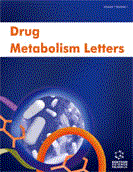Abstract
Purpose: Menthol in cigarettes has been suggested to inhibit metabolism of nicotine and 4-(methylnitrosamino)-1- (3-pyridyl)-1-butanone (NNK). The objective of this study was to investigate the glucuronide metabolite ratios (MR) for nicotine (NICGLUC/NIC), cotinine (COTGLUC/COT), trans 3’-hydroxy cotinine (3OHCOTGLUC/3OHCOT). 4- methylnitrosamino-1-(3-pyridyl)-1-butanol (NNAL – NNALGLUC/NNAL); and the ratio of trans 3’-hydroxy cotinine to cotinine (3OHCOT/COT) between adult menthol and non-menthol smokers (AS).
Methods: The data was collected from the Total Exposure Study (TES), a stratified, multi-center, cross-sectional study that included 3,585 AS and 1,077 non-smokers. Daily urinary excretion of nicotine and five metabolites, NNAL and NNAL glucuronides, and serum cotinine were measured in the AS. The analysis included 1044 menthol (448 African- Americans, AA) and 2297 non-menthol (161 AA) AS.
Results: Smoking mentholated cigarettes did not decrease any of the MR. Race was the most important significant main effect for all the MRs. AAs exhibited statistically significantly lower NICGLUC/NIC, COTGLUC/COT, NNALGLUC/ NNAL and 3OHCOT/COT, but higher 3OHCOTGLUC/3OHCOT compared to Whites. Age, liver function, alcoholic beverages, etc., were some of the other significant effects for some MRs. Menthol was not a statistically significant effect, e.g. the adjusted mean NNALGLUC/NNAL between menthol and non-menthol AS was 2.93 vs. 2.80 (p>0.05, AA) and 3.38 vs. 3.35 (p>0.05, Whites). The models only explained 2.6-12.6% of the MR variability. Number of cigarettes was the most important factor affecting serum cotinine levels.
Conclusions: Menthol does not inhibit the metabolism of nicotine or NNK. The daily exposure of related constituents is primarily influenced by number of cigarettes smoked per day.
Keywords: NNK, NNAL, nicotine, serum cotinine, metabolism, menthol, non-menthol cigarettes.
 17
17














